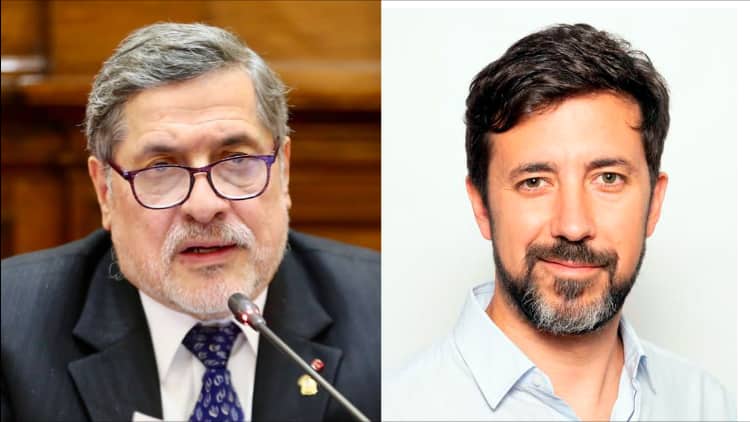The Diplomat
A visit to Spain earlier this month by a Peruvian parliament delegation did not go smoothly, according to accusations made by Ernesto Bustamante, chairman of the Peruvian Congressional Foreign Affairs Committee.
Bustamante has sent a letter to the head of the Foreign Affairs Committee of the Spanish Congress of Deputies, Pau Mari-Klose, in which he accuses the deputy of Unidas Podemos Antón Gómez-Reino of having maintained during the institutional visit to the Lower House an attitude of “mistreatment and meddling” in Peru’s internal affairs, reports Europa Press.
According to Bustamante, Gómez-Reino “falsely” accused the president of the Peruvian Congress, María del Carmen Alva, a militant of the opposition Acción Popular party, of having asked the Spanish deputies to pronounce on the “illegitimacy” of Pedro Castillo’s government.
Last Friday, in statements to TV Peru, the Podemos deputy said that Alva had made an unusual statement that was “frankly worrying and shocking” for expressing “terms of democratic questioning” in his country. “We are too used to there being certain elites in Europe and Latin America who do not accept democratic results, but for them to go to other countries to openly criticise, and criticise is a kind word in this case, I think it is unheard of,” the MP said.
The Peruvian media compiled testimonies from different Spanish politicians who recognise that the president of Congress did indeed refer to Castillo’s government as “illegitimate”.
According to Bustamente, however, what the president of Congress did at the meeting was to “explain the tense internal political situation” in Peru “for the benefit and knowledge of the Spanish colleagues present”. “If Congressman Gómez-Reino has hearing or language comprehension problems, this does not authorise him to lie,” said the congressman, who belongs to the pro-Fujimori Fuerza Popular party.
He also condemned the fact that, after the meeting, the Spanish deputy had presented an initiative to the Congress of Deputies for Spain to express a position of support for Castillo’s administration.
According to the text that Gómez-Reino himself shared on social networks, this non-legislative proposal aims for the Chamber of Deputies to undertake “all political and diplomatic actions within its reach to support democratic institutions in Peru and publicly promote respect for the popular will expressed democratically at the ballot box”.
This proposal, according to Bustamente, ratifies the MP’s intention to “meddle in Peru’s internal affairs” and to treat the South American country “as if it were a colony and not a sovereign and independent nation”.
In view of this, the MP warned his Spanish counterpart that, if the initiative were to be approved, it would be a “transgression of international law and the rules of good behaviour between friendly countries”. “You will see that -in addition to seriously damaging relations between the Spanish and Peruvian parliaments- it may then be up to the Peruvians to make media pronouncements on issues such as Catalonia, the Basque Country, Spanish royalty or even Gibraltar”, he threatened.
As a result of the controversy generated by this meeting in Madrid, the Peruvian Foreign Ministry said in a statement on Sunday that it had requested “official information” from its embassy in Spain and assured that it would act in accordance with the principle of transparency and would give an account of what had happened.
Peru’s Prime Minister, Mirtha Vásquez, said that Alva’s alleged statements are “a very delicate matter”, although she stressed that “there are several versions” of what happened and said she would “be cautious” and investigate the incident.
“We consider it to be a very delicate matter, because we are talking about the president of, no less, a state power that would be making statements against a democracy”, the prime minister stressed in a statement to the Canal N channel. Vásquez confirmed that “official information has been requested through the Foreign Ministry”.






